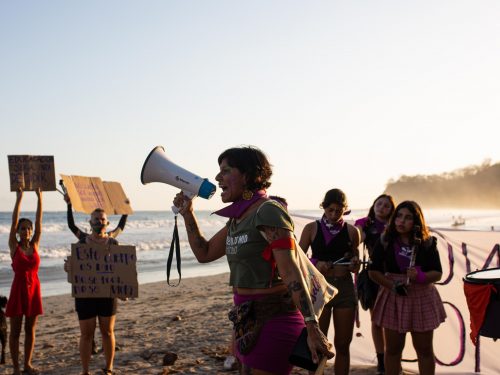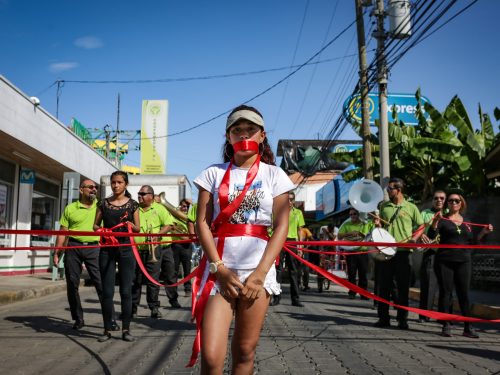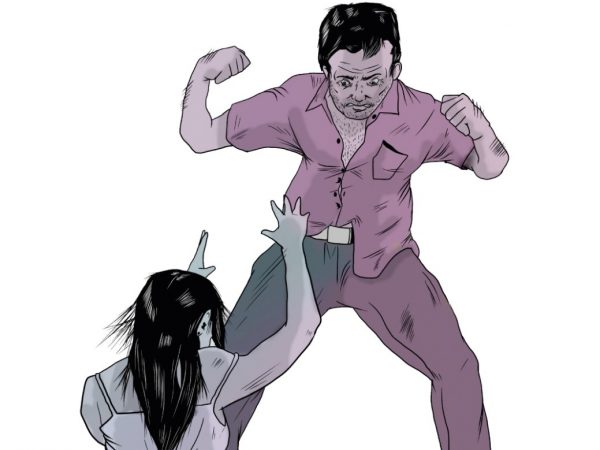
Suitcases and bags
Saddle bags poorly tied
faggot men
Ill-tamed women
Very few people can say they haven’t laughed or haven’t yelped the Guanacaste howl during a party when someone tells a local wisecrack like this one, which is part of a collection by the Culture of Ministry through the Center for the Conservation of National Heritage.
If we read it carefully, many of these popular sayings dedicate the first two lines to nostalgic images of rural life and the following two lines carry messages full of stereotypes about how women and men should act. Women should be obedient and tame and men should be brave.
The trend extends to sayings, songs and stories that feed our folklore. Where does this come from and what should we do about it? We asked composers in the province.
Time past?
¡BOOOOMBA!
My friend jumps on
the mare I was riding
The pleasure I take from it
Is that I rode it first
No one knows for sure how many years this has been around nor who wrote the verse, but it’s easy to imagine a scene in which cowboys hold bottles in their hands, resting after a long day in the field and women cook on the stoves.
Guanacaste composer Guadalupe Urbina listened with distress to this verse a couple of years ago in the Limonal Festival of Marimba thinking about its double meaning. “I said, if there were other Spanish speakers here listening to this, it would be an embarrassment that our children are reproducing these kinds of things.”
For Urbina, much of the violence we live through day in and day out starts in childhood, when our very culture seems to give us permission to use rhymes to make rude comments, use vulgar speech against women or define who is more macho and who rode the mare first.
When culture says you aren’t valuable it’s very easy to be mistreated because you aren’t visible,” Guadalupe Urbina, composer.
National University researcher Yorleny Espinoza unpacks songs written by Guanacaste composers in search of gender stereotypes. For her, it’s very important to not allow these types of lyrics to become tradition.
“Subconsciously, this affects our view of the world because we have a cultural imagination that, if fed by machismo, is more likely to develop or allow aggressive conduct,” Espinoza said.
That Guanacaste of the past, she says, is the one that extolls certain types of masculinity that celebrate womanizers, drunks and fighters.
“I don’t go around with pussies,
I spend time with manly men”
…
“When a fight arises
No man can hold me back.
In dance and with women
No one can beat me.
The upper stanzas belong to a song titled El rajón by Santa Cruz band Los Chocuacos. It was recorded this year, but written in the 1980s by the group Cornizuelo.
Arnaldo Rosales, leader of the group, explains that the lyrics belonged to his uncle Rolando Gómez and that they look at it from a different point of view.
“Under no circumstances do we want to say that people from Guanacaste have to be that way. It’s more of a satire of those who believe that this is the idea of being Guanacastecan,” he said.
The Santa Cruz band Los de la Bajura is, perhaps, the most iconic group of musical folklore in the province. In their songs, they intertwine many rhymes like the one about the mare.
Balo Gómez, its founder and director, agrees verses with violent, machista content are wrong. But he says traditions can’t be forgotten.
“These jingles have always had a double meaning. And not just in Costa Rica, but in all of Latin America,” Balo says. “For example, I have a big dog and you have a small one. What if I give you the big one and you give me the small one? I’m talking about a dog, but if you’re thinking about something else that’s your problem.”
On the other hand, other Guanacastecan composers believe that any manifestation of machismo or violence should be rooted out, even though it is considered tradition. Ana Lucía Rodríguez and her colleague Melena, members of the Guanacaste group Paisaje Ámbar, are two of them.
I ran the gamut
Like Aguilera ran it
I made the mother fall in love
I made the daughter fall in love
I made the granddaughter and the cook fall in love
Viewed closely, the verses reinforce the stereotype of the man as a conquistador of all the women who live in the house. Melena uses these verses to show that there is violence within folklore that becomes routine.
For her, the cases of domestic violence and sexual abuse that keep happening in Guanacaste’s homes are enough reason to eliminate these types of rhymes and songs.
“We have to rebuild our history and our music so that it is healthy and friendly to everyone,” the composer says.
But it’s still difficult to do in folklore. For example, she says that during a week of civic festivities in Santa Cruz, they scheduled her concert after the “main dish” of the night when the audience is starting to leave.
And a couple of years ago she participated in a discussion with Guanacastecan singers about traditional culture and several men in the group griped and said that it was discriminatory not to invite them. Melena rejects this argument, saying that men have always been given these types of recognition.
My father is also a singer and he is always honored in the name of Guanacaste. Men receive a lot of recognition, but it’s harder for women.”
What’s Next?
For institutions, it’s impossible to control the content of rhymes and songs.
Lizeth López of the Center for the Conservation of National Heritage argues the people who keep these traditions alive are the ones who should write the rules and take care of the language, not just in terms of gender but respect in general.
The members of Paisaje Ambar trust that young composers will reinvent folklore for generations to come, though at the moment there isn’t an explosion of new Guanacastecan folklore singers.
Arnaldo, of Los Chocuacos says Paisaje Ámbar is “great” and he was happy to see them receive applause two years ago during a show in Santa Cruz. “Maybe in the 80s that would have been viewed negatively,” he said, adding that he hopes traditional music continues to evolve.
“What we bring from old times is what we have been expressing, those brushstrokes of scenery we have in Guanacaste. One of the greatest feets we can achieve as composers is write with a vision of the future and less of the past,” he adds.
Ana Lucía sums it up this way: “We don’t want to ruin the eternal Guanacaste. We want to improve it.”






Comments